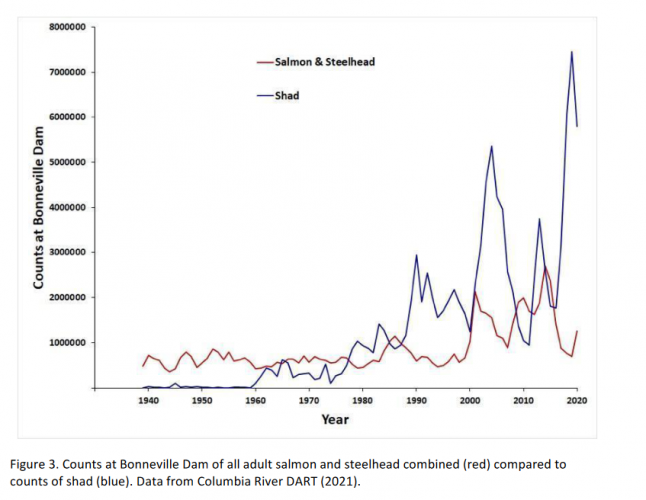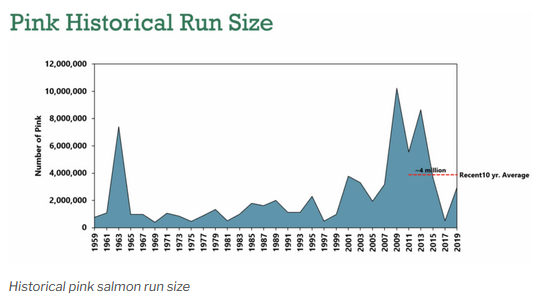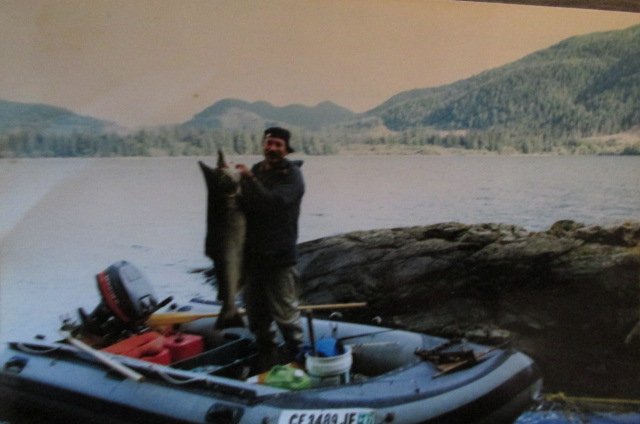Navigation
Install the app
How to install the app on iOS
Follow along with the video below to see how to install our site as a web app on your home screen.
Note: This feature may not be available in some browsers.
More options
You are using an out of date browser. It may not display this or other websites correctly.
You should upgrade or use an alternative browser.
You should upgrade or use an alternative browser.
14 Alaska Fisheries Declared Disasters
- Thread starter AlaskaHunter
- Start date
Goodfish
Well-known member
The other big wild card is high seas illegal commercial fishing. I don’t buy anything caught or processed in Asia because there is an extremely high percentage that it was sourced unethically. Salmon are milling around out there way off shore and nobody really understands where they are or where they go until they start returning 2-3 years later. Albacore make a many thousand mile circuit from the sea of Japan to central America and back past the US coast in late summer. In addition to the high seas poaching, That is the reason I think these fisheries for krill and baitfish to be used for fish oil are so bad in the long run. It is too complex of an equation to see an immediate result and even though they may not be in our back yard I expect it affects our fisheries too.
Goodfish
Well-known member
The Humpy runs are excellent! We have to remind people that their carcasses do a far better job of feeding invertebrates that feed salmon and steelhead smolts in rivers, than for making fish nuggets and burgers in elementary schools!Shad and pink salmon. The future of west coast fisheries.
View attachment 210222
View attachment 210223
Unfortunately shad are introduced.
Salmonchaser
Well-known member
- Joined
- Nov 12, 2019
- Messages
- 2,556
I just got a bunch of updates from ADFG. Significant restrictions on the Kenai peninsula and Cook Inlet. Haven’t read them all yet but I’m glad I’m not planning to fish kings this year.
Bambistew
Well-known member
The commercial harvest for kings in 2020 was about 3000 in the entire upper cook inlet, very, very few kings are harvested when targeting sockeye in the Kenai.In 2020 there weren’t even 12k that made it into the Kenai river on the late run. Commercial take was 260k fish.
There is around that many taken via sport fishing in the rivers and salt.
SD_Prairie_Goat
Well-known member
Good news is the sockeye fishery has been doing pretty good at least.Seems like good news is hard to find on anadromous fisheries coast to coast.
And in my selfish ways, that's perfect because I love fishing for them haha
AlaskaHunter
Well-known member
Good news is record runs of sockeye and pink salmon.Seems like good news is hard to find on anadromous fisheries coast to coast.
Bad news is Kings and Chum runs in trouble.
Goodfish
Well-known member
One of the most successful and well managed commercial fisheries in the world is the Bristol Bay sockeye harvest. It’s been going since 1880 and this years return is predicted to be double the long term average. 73 million predicted! More than the rest of the lower 48 combined.Commercial exploitation of fisheries are bad for the ecosystem? Shocker.
Irrelevant
Well-known member
Do you really think it's "success" is due to its management or factors outside our control?One of the most successful and well managed commercial fisheries in the world is the Bristol Bay sockeye harvest. It’s been going since 1880 and this years return is predicted to be double the long term average. 73 million predicted! More than the rest of the lower 48 combined.
I'm real skeptical that we deserve much credit. There's simply too much we don't know.
Goodfish
Well-known member
Historically it was definitely due to the management. No one was allowed to fish until each creek in the bay reached its needed spawning escapement. Then they opened the localized area for a few days and closed it again until the next escapement goal was achieved. There were no hatcheries. Historically being at least until the 1990’s when I was fishing it.
edit—It looks like they are still doing it this way but using more electronics than guys on each creek like when I was a kid.

 www.adfg.alaska.gov
www.adfg.alaska.gov
edit—It looks like they are still doing it this way but using more electronics than guys on each creek like when I was a kid.

Bristol Bay Sockeye, Gene Conservation Laboratory, Division of Commercial Fisheries, Alaska Department of Fish and Game
Gene Conservation Laboratory information on managing Bristol Bay sockeye salmon harvest with genetic data.
Last edited:
Hydrophilic
Well-known member
I spend a lot of time following and participating in salmon conservation here in the PNW. It gets real complicated but the problems are actually pretty simple. $$$
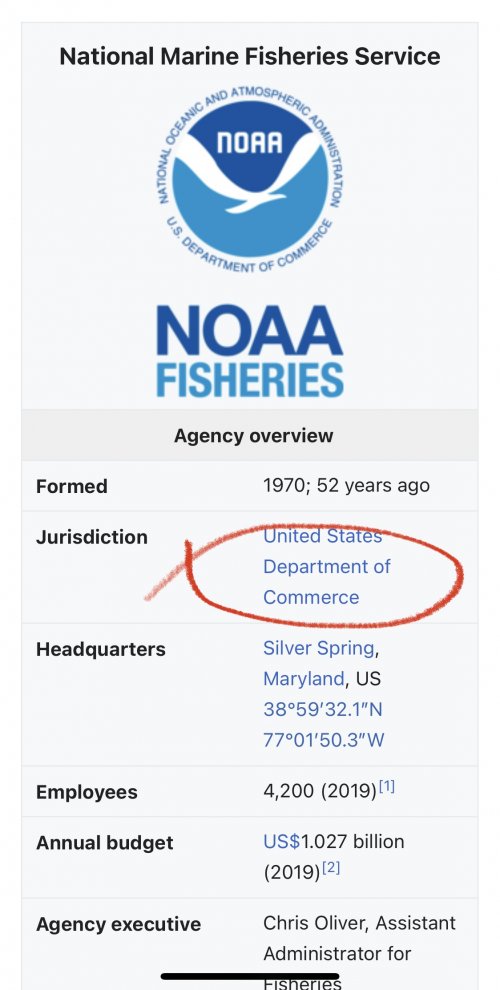
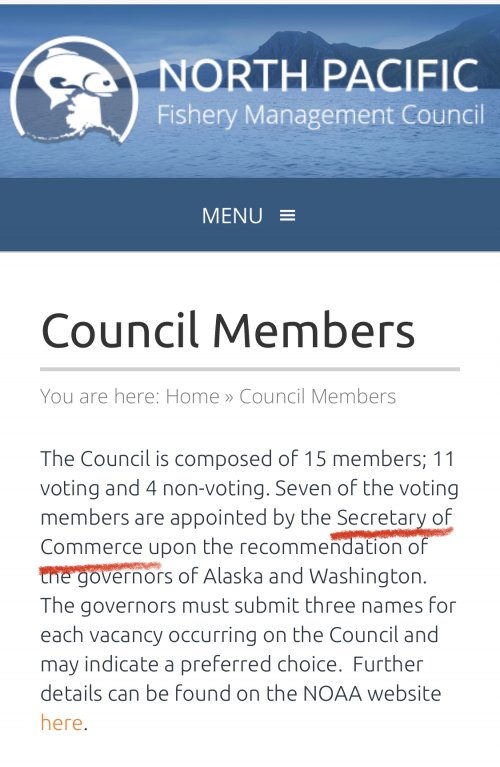
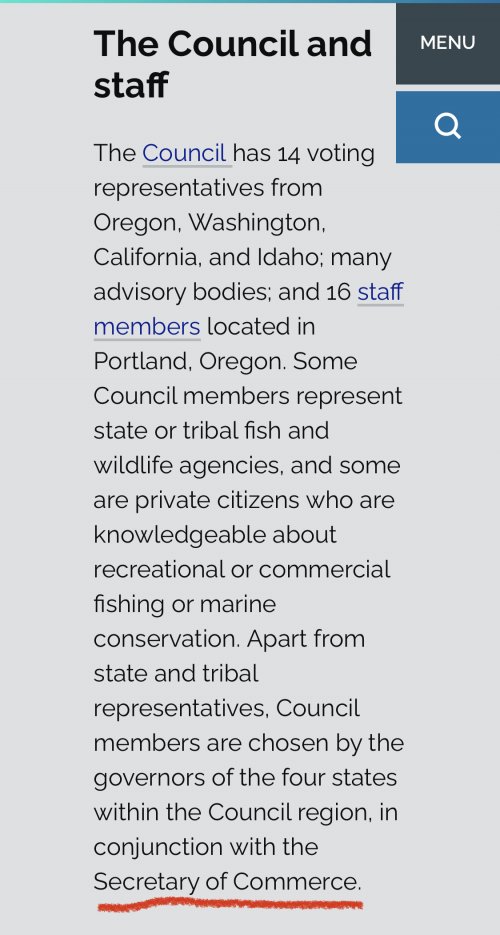
That’s just the commercial harvest side. The rec side is full of business interests. Habitat is compromised by extraction interests seeking maximized profits, such as extensive logging in Oregon right up to the river.
Then of course there are ag fights over water, urban development, Environmental regulatory agencies who don’t enforce basic environmental rules because the corporations control their budget, and the list goes on.
Who would have thought green paper could cause so many problems?




That’s just the commercial harvest side. The rec side is full of business interests. Habitat is compromised by extraction interests seeking maximized profits, such as extensive logging in Oregon right up to the river.
Then of course there are ag fights over water, urban development, Environmental regulatory agencies who don’t enforce basic environmental rules because the corporations control their budget, and the list goes on.
Who would have thought green paper could cause so many problems?

Polluted by Money
How corporate cash corrupted one of the greenest states in America
projects.oregonlive.com
Irrelevant
Well-known member
While that would certainly help, it's still not simple.
Hydrophilic
Well-known member
While that would certainly help, it's still not simple.
True. Salmon are a complicated migratory species and migratory species in general typically have more complex habitat needs…which means more ways to impact them.
The root of the problems typically circle back around to money. Why is the habitat being destroyed in the first place? Why do we still have robust commercial fisheries, some who fish unknown salmon stocks in the ocean, when we could instead focus harvest efforts on individual river stocks in their rivers? Why do we commercially harvest salmon but we decided it was ok not to commercially harvest elk and deer? Why is there pushback on environmental regulations that clean up the water?
If you take other complex migratory species you can notice similar trends. Habitat loss due to change in agriculture practices have altered milkweed distribution (their host plant) and flower blooms (their food) that correspond to energy intensive monarch migrations. Do farmers have to use intensive herbicide regimes to maximize profits at the expense of diverse wildlife habitat? Does their overwintering habitat need to be developed? Same for mule deer. Why do we keep developing critical winter range habitat? Why is there pushback on efforts to try combatting climate change? It’s our operating system more than the individualized problems of habitat, harvest, hatchery, and hydropower, ocean, etc.
I enjoyed Jim Lichatowich’s book ‘Salmon without Rivers’. I would recommend anyone interested to pick up a copy and a fifth of whisky to drink while you read it.
Irrelevant
Well-known member
I liked Jim's book, but preferred Montgomery's though to be fair I hardly remember them, it's been a decade or more since I read either.True. Salmon are a complicated migratory species and migratory species in general typically have more complex habitat needs…which means more ways to impact them.
The root of the problems typically circle back around to money. Why is the habitat being destroyed in the first place? Why do we still have robust commercial fisheries, some who fish unknown salmon stocks in the ocean, when we could instead focus harvest efforts on individual river stocks in their rivers? Why do we commercially harvest salmon but we decided it was ok not to commercially harvest elk and deer? Why is there pushback on environmental regulations that clean up the water?
If you take other complex migratory species you can notice similar trends. Habitat loss due to change in agriculture practices have altered milkweed distribution (their host plant) and flower blooms (their food) that correspond to energy intensive monarch migrations. Do farmers have to use intensive herbicide regimes to maximize profits at the expense of diverse wildlife habitat? Does their overwintering habitat need to be developed? Same for mule deer. Why do we keep developing critical winter range habitat? Why is there pushback on efforts to try combatting climate change? It’s our operating system more than the individualized problems of habitat, harvest, hatchery, and hydropower, ocean, etc.
I enjoyed Jim Lichatowich’s book ‘Salmon without Rivers’. I would recommend anyone interested to pick up a copy and a fifth of whisky to drink while you read it.
I think salmon have complexity beyond any of your examples. For instance, freshwater habitat may not be all that important. You have rivers on the OP that are almost exactly like they were 200 years ago, certainty within 95+ percentile of high quality. Yet we observe the same downward trends. I have for many years now lamented all the effort to put woody debris in rivers, not because rivers don't need woody structure, but because that money is being wasted on an impact that we damn sure KNOW isn't the #1 influencer of our salmon runs. Every intensely monitored watershed I've followed has shown negligible increases in smolt survival after years a millions spent on engineered log jams.
We need to stop putting the cart before the horse and actually fund research to determine WTF is actually limiting our runs. Why did it take decades of watching coho in urban Seattle leap out of the water and die after every rain even before we figured out it's a unique compound in tires? How many more things like this are out there? I mean the MOST advanced WWTP are removing nutrients (phosphorus and nitrogen), that's it. It'll be a generation or more before we even get all of the existing plants up to that level. What about all the other contaminants? We just don't know because we're wasting money on feel good projects and not hard research.
Irrelevant
Well-known member
Ask an thou shall recieve?We need to stop putting the cart before the horse and actually fund research to determine WTF is actually limiting our runs.

Researchers launch expedition seeking 'black box' to salmon survival
Some populations of salmon are in peril in the Northwest, where scientists are set to launch an international expedition into the remote ocean, which could hold clues to the fish's survival.
Goodfish
Well-known member
That is fantastic!
Irrelevant
Well-known member
Certainly some $$$ involved in this slap down by NOAA.I spend a lot of time following and participating in salmon conservation here in the PNW. It gets real complicated but the problems are actually pretty simple. $$$
View attachment 210329
View attachment 210330
View attachment 210331
That’s just the commercial harvest side. The rec side is full of business interests. Habitat is compromised by extraction interests seeking maximized profits, such as extensive logging in Oregon right up to the river.
Then of course there are ag fights over water, urban development, Environmental regulatory agencies who don’t enforce basic environmental rules because the corporations control their budget, and the list goes on.
Who would have thought green paper could cause so many problems?

Polluted by Money
How corporate cash corrupted one of the greenest states in Americaprojects.oregonlive.com

NOAA Fisheries Denies Request for Emergency Action on Bering Sea Salmon Bycatch
Petition did not meet three criteria necessary for emergency rule.
Goodfish
Well-known member
Yes that is some great government logic. We don’t know what’s wrong but the one thing we do know that’s wrong isn’t a big enough problem so let’s do nothing until no kings come back.
Similar threads
- Replies
- 2
- Views
- 980
- Replies
- 0
- Views
- 1K




